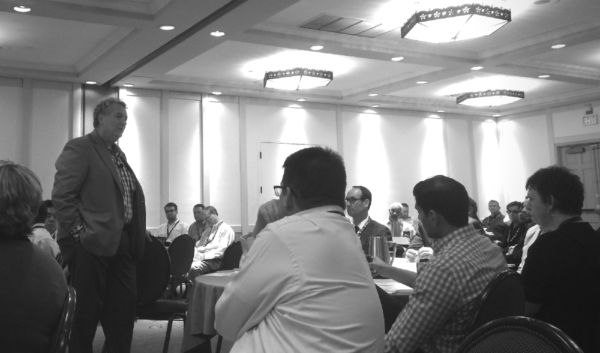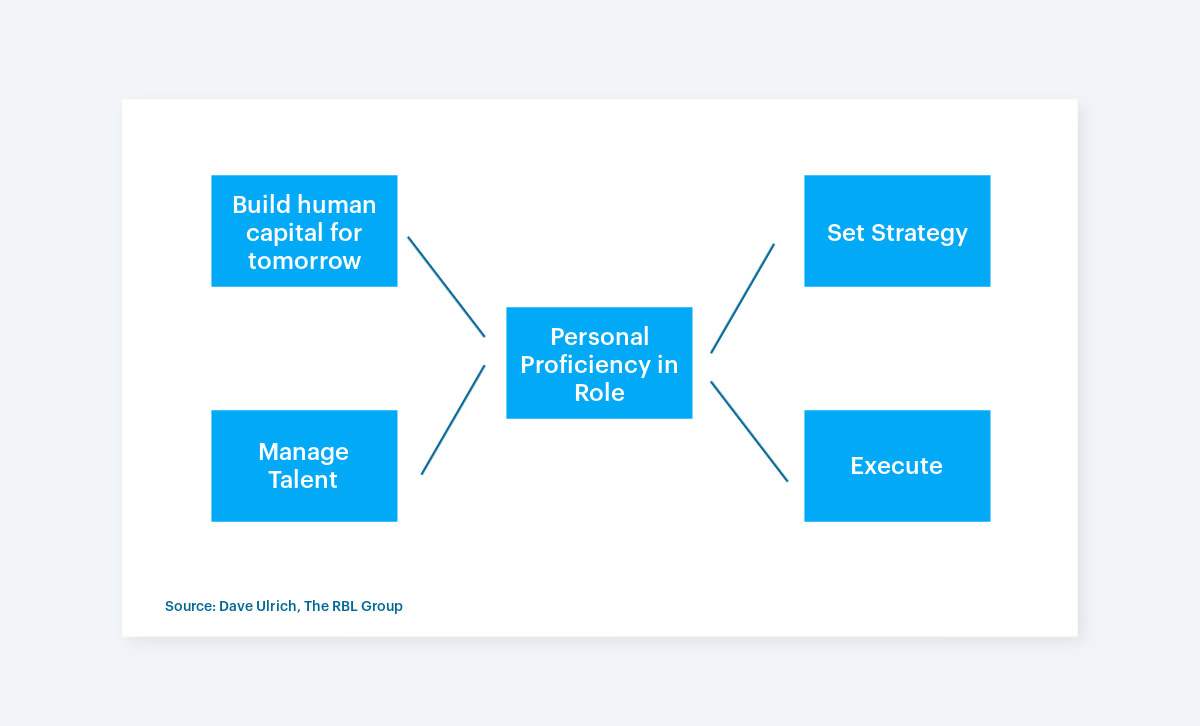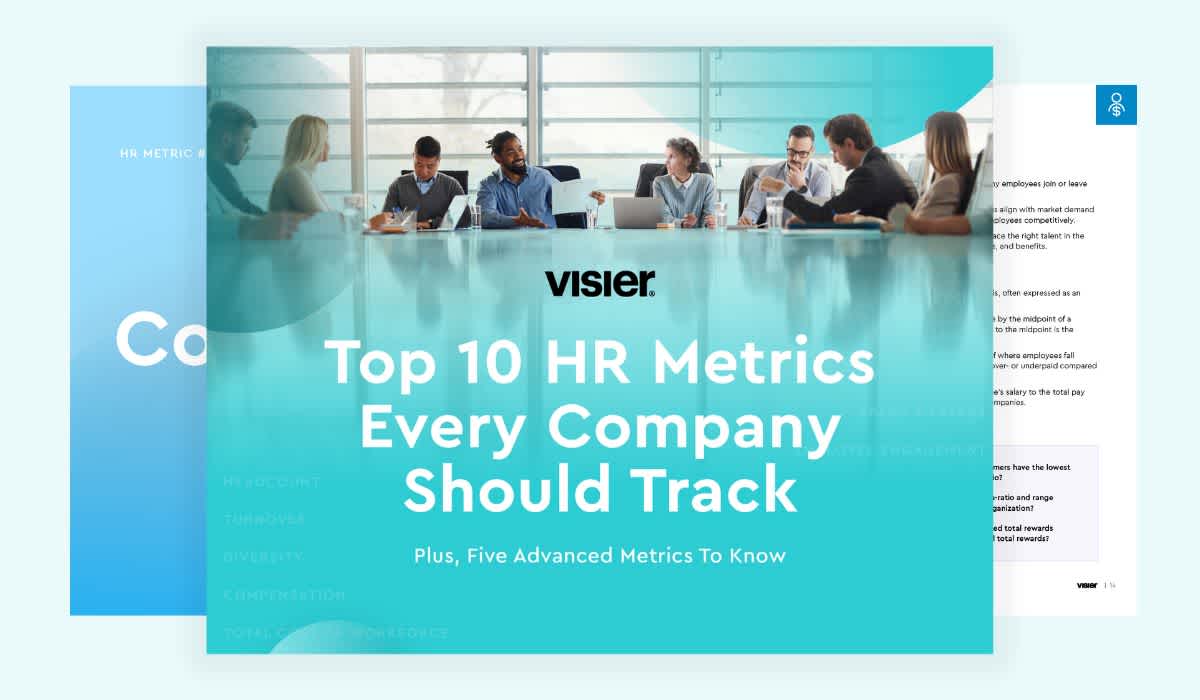HR from the Outside In: Learnings from Dave Ulrich
We hosted an interactive HR Leadership workshop for Visier customers, led by father of modern HR Dave Ulrich. Here are key takeaways.

Earlier this month we were fortunate to host an interactive HR Leadership workshop for Visier customers, led by father of modern HR and leading business consultant Dave Ulrich. In this workshop, Ulrich focused on the top questions of the group, the first of which was focused on, “What is blocking HR’s progress?” Here are some key takeaways.
In December 2014 Dave Ulrich published the article Why Chief Human Resources Officers Make Great CEOs in Harvard Business Review, in which he shared the results of his research with Korn Ferry’s Ellie Filler. Leveraging proprietary assessments administered by Korn Ferry to C-suite candidates over a period of more than 10 years, Ulrich and Filler looked at the prevalence of 14 leadership traits across c-suite roles. Surprising to many, they found that — except for COOs — CHROs had traits that were the most similar to those of the CEO. The implication according to Ulrich: Great HR leaders who know the business are well-positioned to become successful CEOs.
Yet, if this is the case, then what is holding HR back in some companies from playing a driving strategic leadership role in the business?
Great HR is about making the business better, not HR better
A lack of business acumen will hurt any business leader, including those in HR: if you don’t know “why” business decisions are being made, you cannot connect decisions to business outcomes. Ulrich and his team call this being a “strategic positioner.”
As described in their paper, The New HR Competencies: Business Partnering from the Outside-In: “High-performing HR professionals think and act from the outside-in. They are deeply knowledgeable of and able to translate external business trends into internal decisions and actions. They understand the general business conditions (e.g., social, technological, economic, political, environmental, and demographic trends) that affect their industry and geography. They target and serve key customers of their organization by identifying customer segments, knowing customer expectations, and aligning organizational actions to meet customer needs.”
According to Ulrich, to become a strategic positioner you need to know:
Your company’s financial and business strategy
How your company is going to win
Who your stakeholders are, both internally (e.g. c-suite and board) and externally (e.g. customers and investors)
What the conditions are that generate risks and opportunities for your business
If you gave your HR department an economic literacy test, what would the result be? Do you know who your company’s top customers are? Do you know who your competitors are? These were a few of the questions posed by Ulrich to the audience.
To be great in HR, you need to pivot from looking from inside the business outwards, to looking from outside in. A critical mindset shift, according to Ulrich.
HR needs to evolve from “trusted advisor” to “credible activist”
In some ways, Ulrich explained, HR is its own worst enemy. If you look at the results of Ulrich and Filler’s mapping of leadership traits, while CEOs and CHROs were very similar, they differed the most in one trait: confidence. When it comes to confidence, the CEO and COO took top marks, followed by the CIO, CMO, and CFO, and lastly the CHRO.
To build confidence, HR needs to know the organizational strategies and communicate the value of workforce programs, plans, and decisions in the terms of the business. As Ulrich explained, “HR that starts with the business, doesn’t get as much resistance from the business.” In other words, value is in the eye of the receiver. Connect your ideas and plans to specific business issues or goals, and you are more likely to win support.
To be great, you need to have grit
Ulrich emphasized the need for HR leaders to increase their resilience and become more comfortable with taking risks. Referring to Dr. Angela Lee Duckworth’s popular TED Talk, Grit, Ulrich talked about how perseverance and passion for long-term goals is a more significant predictor of success than IQ or EQ (you can take the Grit test yourself).
According to Ulrich, to develop more grit, HR leaders need to lower their fear of failure and make it OK to fail.
In his book, Failing Forward: Turning Mistakes into Stepping Stones for Success, best-selling author John C. Maxwell discusses how the difference between average and achieving people is their perception of and response to failure. Most people — not just those in HR — are never prepared to deal with failure. Rather, failure is something feared, misunderstood, and avoided.
Ulrich calls this building “learning agility”
To fail forward you need to reduce your fear of failure and — when failure happens — focus on learning from it instead of being defeated by it (as Maxwell expresses: “Stop failing backward and start failing forward!”).
Great leaders are not just highly proficient in their own roles. According to Ulrich’s research on the Leadership Code and Leadership Brand, great leaders also know how to:
Set strategy
Execute
Manage talent
Build human capital for tomorrow

During our HR Leadership workshop, Ulrich shared many compelling examples and stories of HR playing a role “from the outside in,” emphasizing the need for HR to be about creating business value. The trick to accomplishing this? Include the phrase “so that” in every conversation with business leaders:
We want to reduce resignations of pivotal employees in Product Design so that we can meet our product innovation goals.
We have developed a plan to improve employee sentiment in our retail outlets by 10 percent so that we can improve customer satisfaction, which will increase profits by 2 percent.
We are going to not react to the increase in voluntary turnover in this department so that we can better meet our cost efficiency initiative for the next fiscal year.
By building the competencies Ulrich and his colleagues have defined for “business partnering from the outside-in,” HR leaders have the ability to play a much more impactful role in the business. And, once they have developed themselves as great leaders, they can focus on the next effective way for HR to drive results: developing other great leaders within the business. (the subject of Ulrich’s newly released book, The Leadership Capital Index: Realizing the Market Value of Leadership, in which Ulrich shows the market value of leadership by giving investors a rigorous way to assess the quality of leadership of firms where they invest). In his latest book, Ulrich shows that leadership is about adding value, not only to employees, but also to investors — a truth for all business leaders including those in HR.


